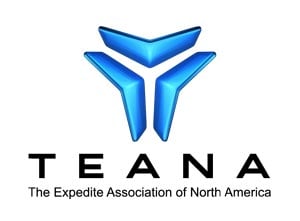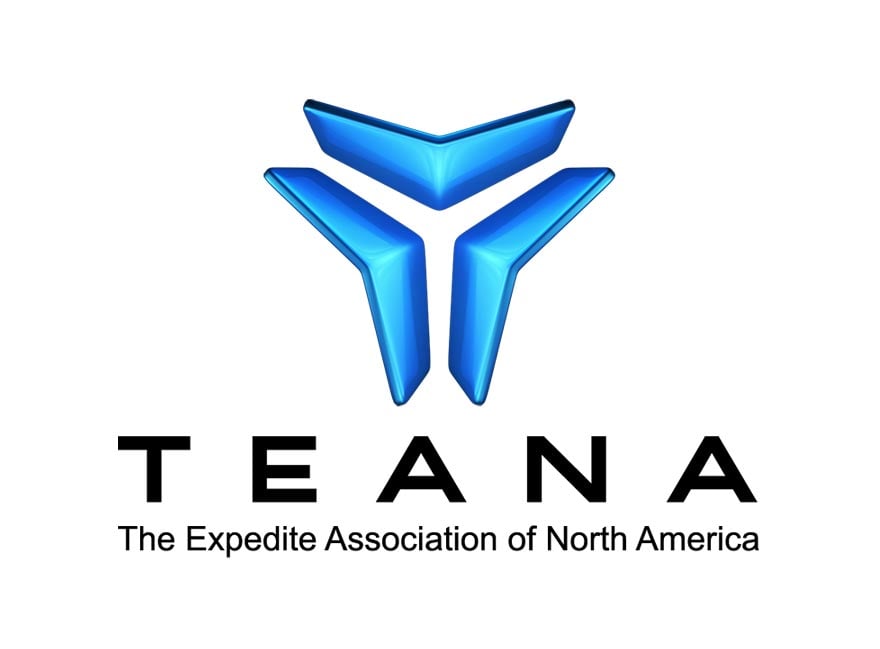
Contents
FMCSA has extended its emergency declaration regarding COVID-19 through May 31, 2022. For the latest version and other guidance related to COVID-19 is available at www.fmcsa.dot.gov/COVID-19. Note that use of the declaration now requires monthly reporting by carriers.
Regulation and Enforcement
- FMCSA resurrects plan to require speed limiters on heavy trucks
- FMCSA revisits state inspection programs for passenger carriers
- Final rule implements HHG working group recommendations
- Steel company receives relief for scrap metal haulers
- FMCSA denies CDL exemption for driveaway carriers transporting empty vehicles
- FMCSA rejects exemption for bus company’s Mexican-licensed drivers
Legislation
Advocacy and Comment
Regulation and Enforcement
FMCSA resurrects plan to require speed limiters on heavy trucks
As recently as December, the Federal Motor Carrier Safety Administration had labeled speed limiters for heavy commercial vehicles as a long-term priority and not imminent, but it has now indicated that it will move forward with a plan to require carriers to use such devices. In the May 4 Federal Register, the agency published an advance notice of supplemental proposed rulemaking.
Late in the Obama administration, FMCSA and the National Highway Traffic Safety Administration jointly issued a notice of proposed rulemaking (NPRM) that would have required vehicle manufacturers to program a maximum speed as determined by further rulemaking into truck engines’ electronic control units (ECUs) and would have required motor carriers to maintain the speed limiting devices for the service life of the vehicle. The proposed rule would have applied to new vehicles with gross vehicle weight ratings of more than 26,000 pounds.
Although the Trump administration withdrew several Obama-era rulemakings in 2017, it did not withdraw the proposed speed limiter rule but rather shelved it by labeling it as a “long-term action” in the unified regulatory agenda. Nearly a year into the Biden administration, the Department of Transportation still lists speed limiters as a long-term action, and NHTSA has not signaled any action.
FMCSA now plans to move forward with a supplemental notice of proposed rulemaking (SNPRM) that would require motor carriers to use available speed-limiting technology on their trucks’ ECUs, which is within its authority. The advance SNPRM seeks comments by June 3 on various technical issues involved in speed limiters, including what skills or training are needed to adjust or program ECUs to limit speed, what equipment is needed, how long it takes, etc. FMCSA also is seeking input on whether there should be a retrofit requirement for engines that were not manufactured with speed limiting capabilities built into the ECUs and whether the upcoming rule should be expanded to include Class 3 to 6 vehicles.
For the Federal Register notice, visit https://www.federalregister.gov/d/2022-09443.
FMCSA revisits state inspection programs for passenger carriers
As directed by the Infrastructure Investment and Jobs Act (IIJA), FMCSA is soliciting additional comment on an advance notice of proposed rulemaking (ANPRM) concerning potential requirements for states to establish annual inspection programs for CMVs designed or used to transport passengers. The agency had issued the ANPRM in April 2016 during the Obama administration, but it was one of several rulemakings withdrawn by FMCSA in 2017 as part of the Trump administration’s regulatory review, which determined that there was not enough data and information available to support moving forward with a rulemaking.
Comments are due June 9 on a series of questions posed in FMCSA’s May 10 Federal Register notice. For that document, visit https://www.federalregister.gov/d/2022-09657.
Final rule implements HHG working group recommendations
FMCSA has amended the federal regulations for transportation of household goods to incorporate the recommendations of the Household Goods Consumer Protection Working Group, which was established by the FAST Act in late 2015. The agency’s rule amends regulations to reflect aspects of the recommendations that require a rulemaking to implement and are within FMCSA’s authority. The rule also makes additional minor changes to the HHG and broker regulations intended to increase clarity and consistency.
The final rule is effective June 27. For the rule, visit https://www.federalregister.gov/d/2022-08808. The report of the working group is available at https://www.fmcsa.dot.gov/fastact/fast-act-hhg-working-group-report-recommendations.
Steel company receives relief for scrap metal haulers
FMCSA has granted an exemption to Cleveland-Cliffs Steel, LLC (Cliffs) that would allow its employee-drivers with CDLs who transport scrap metal on two trucks between their production and shipping locations on public roads to work up to 16 hours per day and to return to work with less than the mandatory 10 consecutive hours off duty. The exemption is similar to the hours-of-service (HOS) exemption that applies to Cliffs’ drivers transporting steel coils. However, unlike the steel coil exemption, the scrap metal trucks would comply with the heavy hauler trailer definition, height of rear side marker lights restrictions, tire loading restrictions, and the coil securement requirements in the FMCSRs. For the Federal Register notice, visit https://www.federalregister.gov/d/2022-10129.
FMCSA denies CDL exemption for driveaway carriers transporting empty vehicles
FMCSA has rejected an exemption sought by a group of affiliated driveaway motor carriers from the requirement that drivers transporting certain empty passenger vehicles hold a CDL. The exemption would have covered drivers delivering commercial motor vehicles (CMVs) with seating capacities of 16 or more, including the driver, but with a gross vehicle weight rating (GVWR) of less than 26,001 pounds. FMCSA determined that the application provided no evidence that the exemption would ensure a level of safety equivalent to or greater than that achieved absent such exemption. For more information, visit https://www.federalregister.gov/d/2022-08936.
FMCSA rejects exemption for bus company’s Mexican-licensed drivers
FMCSA has denied an exemption from several regulations related to CDL/CLP testing that was requested by Tornado Bus Company for certain drivers who currently hold a Mexican Licencia Federal de Conductor. The exemption would have covered drivers who have been granted permanent resident status from the Department of Homeland Security (DHS) and have more than two years’ experience driving in the U.S. and Mexico. FMCSA determined that the application does not demonstrate that the exemption would likely ensure a level of safety equivalent to or greater than would be achieved absent such exemption. For more information, visit https://www.federalregister.gov/d/2022-08934.
Legislation
House bill would eliminate overtime exemption for regulated truck drivers
Rep. Andy Levin (D-Michigan) and seven co-sponsors – all but one of them Democrats – introduced legislation (H.R. 7517) that would repeal the overtime exemption in the Fair Labor Standards Act that applies to commercial drivers subject to federal hours-of-service regulations. In announcing the introduction, which is only a sentence (not including the title of the bill), Levin cited DOT’s report on potential steps to address supply chain challenges. That report, which was released in February, suggested that eliminating the exemption could help increase the number of truck drivers.
Levin also announced that H.R. 7517 is endorsed by the Owner-Operator Independent Drivers Association, Teamsters, Institute for Safer Trucking, Truck Safety Coalition, Parents Against Tired Truckers, and Citizens for Reliable and Safe Highways (CRASH). For more information on H.R. 7517, visit https://www.congress.gov/bill/117th-congress/house-bill/7517. For the February 2022 DOT report on supply chain issues related to freight and logistics, visit https://www.transportation.gov/supplychains.
Advocacy and Comment
As the above summary indicates, regulatory and legislative issues facing the trucking industry have changed from safety to economic issues. SMS methodology is still around and results in higher nuclear verdicts and insurance rates, but the FMCSA has no clear plan of action to rectify the issue.
Supply chain disruption and economic issues involving drivers and driver pay now occupy center stage. Key issues which are not the fault of carriers or drivers include supply chain disruption, escalating fuel cost, dramatic increase in both new and used trucks and trailers, and parts shortages.
The key administrative and legislative agenda of the new Administration appears to be to blame the so-called “driver shortage” on carrier abuse of both drivers and owner operators. The apparent solution is to eliminate incentive pay, whether by the mile or percentage, and endorse AB5 at the federal level to ensure that all truck drivers are treated as employees. This agenda being proposed at the Legislative and the Administrative level would eliminate independent contractor treatment of owner operators and make truck driving an hourly pay job. The argument that government protection and mandatory pay will solve the supply chain disruption and create more truck driving jobs is a government knows best answer which requires close inspection it has yet to receive.
Under the truth in leasing regulations, 49 C.F.R. 376, blue collar professional drivers have been granted small business independent contractor status for four decades. Protected by regulations that address carrier abuse, drivers and other small businesses who own or lease to own their own equipment have traditionally received independent contractor treatment and the opportunity that goes with it.
The argument is often made that owner operators are forced to accept toxic contracts when the numbers suggest otherwise. Vital segments of the trucking industry, including over-the-road truckload, intermodal dray operations and others are dependent upon independent contractors who could easily obtain regular wage and hour jobs as employees if they did not want the freedom and opportunities to accumulate wealth which the model presents. In fact, recent statistics prove that the threat of AB5 and loss of independent contractor status in California has resulted in owner operators either quitting or feeling forced to file for their own authority to keep independent contractor status otherwise intended and carved out for them in federal regulation.
The nanny state legislation which kills the model will further exacerbate the loss of skilled drivers which cannot be made up by higher taxes. What is needed is to consider how to stimulate the creation of both employees and owner operators to abate the driver shortage in light of escalating costs.
Clearly, the nature of truck driving straightjackets the use of drivers and equipment and necessitates compensation for inordinate, uncompensated delays regardless of how the driver owner operator is otherwise compensated. Action at the Federal Maritime Commission and past precedent at the ICC suggests that this is a proper area for inquiry and regulation to stem this abuse. To be sure, the day-long backups frequently photographed by the press at the California ports are not caused by the waiting truckers but by the inability of the ports and their hourly employees to address the backup.
The above summary of Administrative activity shows that interdisciplinary teams are being established to examine some of these issues including DOL and DOT. Missing, though, is any participation by SBA or the suggestion that, just maybe, stimulus in the form of SBA loans to owner operators and small carriers is obviously going to be necessary for the small business model to continue to flourish in the trucking industry with the otherwise unsustainable predicted costs.
While we are forgiving student loans to the college educated elite, maybe greater consideration should be given to encouraging the ability of small carriers and owner operators to compete in light of the tidal wave of increased costs and access to capital which otherwise will severely limit their viability contrary to the National Transportation Policy.
Clearly, the cost of trucking is going up and small carrier operators will be the most effected. Remember, over 95% of the licensed carriers have less than 10 units and there are as many as 800,000 owner operators who are endangered species if the small business opportunities resulting from independent contractor status is lost. In this context, the cost of new and used equipment is sky rocketing. Fuel now costs as much as $1.00 per mile. The threat of technology eliminating the need for drivers, higher financing charges, and balkanized state-by-state regulations effecting the independent contractor model are bipartisan issues that Congress and the current Administration should be addressing. The trucking industry brought stability to the supply chain chaos resulting from COVID and international disruptions. The new issue ahead for trucking is how to encourage and not stifle blue collar entrepreneurship in trucking.
Our Process lorem ipsum dolor sit amet, consectetur adipiscing elit. Nunc vulputate libero et velit interdum, ac aliquet odio mattis.
Value prop lorem ipsum
Ut posuere hendrerit nisl metus neque. Facilisis quis adipiscing a molestie. Tempor turpis tincidunt nulla diam in. Nec etiam ut neque placerat mauris nulla. Semper hendrerit at urna orci in faucibus sit lacus. Tincidunt fermentum consequat.
SEE OTHER CITIES WE SERVICE IN THIS STATE
Value prop lorem ipsum
Ut posuere hendrerit nisl metus neque. Facilisis quis adipiscing a molestie. Tempor turpis tincidunt nulla diam in. Nec etiam ut neque placerat mauris nulla. Semper hendrerit at urna orci in faucibus sit lacus. Tincidunt fermentum consequat.
SEE OTHER CITIES WE SERVICE IN THIS STATE
Related Blog Posts

Regulatory and Legislative Update - January 2023
Contents Regulation and Enforcement FMCSA proposes changes in broker and forwarder requirements Exemption rejected for including hair testing results into drug clearinghouse FMCSA implements 10-year refresher training and certification for medical examiners DOT modal agencies adjust civil penalties for inflation FMCSA to begin work on vehicle crash causation study Stevens Transport receives CDL-related exemption FMCSA grants two driver training...

Regulatory and Legislative Update - December 2020
Contents FMCSA has extended its emergency declaration regarding enforcement relief for drivers and carriers involved in COVID-19 response through February 28, 2021 and has expanded the declaration to specifically include vaccines and related products within the coverage of the declaration. For details, visit www.fmcsa.dot.gov/COVID-19. Regulation and Enforcement FMCSA declares preemption against Washington’s meal and rest break rules Interim...

Regulatory and Legislative Update - November 2020
Contents The emergency declaration regarding enforcement relief for drivers and carriers involved in COVID-19 response is in place through December 31. For details, visit www.fmcsa.dot.gov/COVID-19. Regulation and Enforcement Coalition urges DOL to affirm that owner-operators are independent contractors FMCSA seeks nominations for Motor Carrier Safety Advisory Committee Comment period extended until November 18 on broker transparency petitions...

Regulatory and Legislative Update - October 2021
Contents Regulation and Enforcement DOT seeks input on ‘supply chain resilience’ in freight and logistics FMCSA rule to link clearinghouse data to CDL Reporting requirement for FMCSA COVID declaration kicked in October 1 FMCSA renews steel company’s exemptions from HOS and securement rules Oak Harbor Freight Lines seeks exemption on driver training instructors Keep Truckin seeks windshield exemption Legislation Infrastructure bill remains in...

Regulatory and Legislative Update - May 2020
Contents For the latest FMCSA guidance related to COVID-19, visit https://www.fmcsa.dot.gov/COVID-19. Regulation and Enforcement FMCSA relaunches Crash Preventability Program NPRM would downgrade CDLs, CLPs for positive drug tests Safety technology firm seeks HOS relief for drivers using its systems SBTC seeks reconsideration of broker bond exemption denial FMCSA again denies SBTC’s ELD exemption bid Pipeline services company seeks ELD exemption...

Regulatory and Legislative Update - December 2022
Contents Regulation and Enforcement FMCSA issues interim guidance on definitions of broker and bona fide agents FMCSA plans to narrow scope of emergency declaration relief ‘Interpretive rule’ clarifies applicability of regulations to passenger carriers Withdrawal of passenger inspection rulemaking confirmed by FMCSA Livestock stakeholders are denied broad HOS exemption FMCSA rejects owner-operator’s exemption from various HOS provisions Driver...

Regulatory and Legislative Update - July 2023
Contents Regulation and Enforcement FMCSA close to seeking input on safety fitness determination regulations FMCSA takes steps to address counteract fraudulent carriers Final guidance issued on definitions of brokers and bona fide agents Truck Leasing Task Force holds inaugural session FMCSA plans to address mandate concerning carriers’ knowledge of regulations NHTSA, FMCSA plan to mandate automatic braking systems on new trucks CARB, truck...

Regulatory and Legislative Update - June 2022
Contents FMCSA has extended its emergency declaration regarding COVID-19 through August 31, 2022. For the latest version and other guidance related to COVID-19 is available at www.fmcsa.dot.gov/COVID-19. Note that use of the declaration now requires monthly reporting by carriers. Regulation and Enforcement Labor Department sets forums to explore misclassification issue FMCSA seeks comments on broker, bona fide agent definitions Comment period on...

Regulatory and Legislative Update - March 2023
Contents Regulation and Enforcement FMCSA extends deadlines in broker proceedings, sets March 31 session Earl Adams named FMCSA deputy administrator; Van Steenburg to retire as CSO Employers to be notified of drivers’ clearinghouse status changes FMCSA issues enforcement policy on actual knowledge of substance violations Pitt Ohio seeks relief from CDL requirement of younger driver program Autonomous vehicle firms seek relief concerning warning...

Regulatory and Legislative Update - January 2021
Contents FMCSA has modified various guidance related to COVID-19. For the latest, visit www.fmcsa.dot.gov/COVID-19. Regulation and Enforcement DOL finalizes rule to clarify independent contractor status FMCSA proposes to revise HOS guidance on yard moves Final rule announced to allow third-party CDL examiners to test their own trainees FMCSA implements FAST Act requirements on rules and petitions Annual inspections of rear impact guards proposed...

Regulatory and Legislative Update - November 2022
Contents Regulation and Enforcement DOL proposes to reverse Trump-era rule on worker classification under FLSA FMCSA’s COVID-19 emergency declaration ends FMCSA rejects SBTC exemption related to the language skills requirement School bus group receives CDL testing exemption regarding engine compartments FMCSA renews UPS exemption from certain ELD requirements FMCSA renews ELD exemption for motion picture-related drivers Legislation House bill...

Regulatory and Legislative Update - July 2022
Contents FMCSA has extended its emergency declaration regarding COVID-19 through August 31, 2022. For the latest version and other guidance related to COVID-19 is available at www.fmcsa.dot.gov/COVID-19. Note that use of the declaration now requires monthly reporting by carriers. Courts Leased owner-operator model outlawed in California as Supreme Court denies cert Supreme Court refuses to consider preemption of broker negligent selection...
WHAT IS HOT SHOT TRUCKING? AKA HOTSHOT TRUCKING
Modern business is all about strict timelines. Whether your field is manufacturing, extraction, retail, or research and development, your operations are bound to rely on activities that operate in tandem. The most minor of supply shortages can throw these activities off, potentially costing you thousands of dollars just for a few hours' delay. Success thus hinges on your ability to right the ship as quickly as possible after a supply shortage arises.
Industries We Serve
Modern day hot shot trucking provides the speed and exclusivity you need to meet the most demanding and time-sensitive shipping requirements. We use every resource, avenue, and channel available to ship your freight by ground or air. Designed specifically to address supply and distribution problems that arise without warning, hotshot trucking tactics involve coordinating a network of carriers in a variety of locations. By calling on the vehicles closest to your supply or distribution points, hotshot brokers can fill any sudden gaps in your supply network almost as soon as they happen. This minimizes the disruption to your business and allows you to quickly return to ordinary operations, weathering the storm without skipping a beat.
Automotive
The automotive supply chain already has significant challenges. Don’t let malfunctioning equipment stop the production line. Step on the gas with HotShotTrucking.com’s suite of services that will get you back in the fast lane. With HotShotTrucking.com, companies are devising shipping strategies to swiftly deliver critical parts and equipment — whether it's ground expedite service with sprinter vans, box trucks and 53-foot tractor trailers or air freight and air cargo.
Aviation & Aerospace
Every moment a commercial airliner sits on the ground, it costs an airline money. Expedited freight services by HotShotTrucking.com can get you back in the air with prompt delivery of parts and equipment throughout North America. We are equipped with the expertise to navigate the complexities of shipping jet engines and other types of loads, and our network of hot shot drivers has extensive experience transporting aviation assets.
Construction
One shipping delay can snowball and cause delays throughout your entire project. You need an experienced 3PL provider who understands the construction industry and has the logistical reach to deliver your freight on time, anywhere. That 3PL partner is HotShotTrucking.com. Whether in the air or on the ground via truck and trailer, we can connect companies to expedited freight services for the prompt delivery of parts and equipment throughout North America.
Mining & Metals
From cranes to chemicals to excavators to conveyor belts, HotShotTrucking.com has the experience and industry know-how required for shipping sensitive, oversized, and hazardous equipment. Third-party hot shot trucking and logistics providers such as HotShotTrucking.com specialize in devising and implementing innovative shipping solutions, ensuring mines can swiftly return to operation. We’ll pick up your shipment, deliver it to the airport and receive it at the other end – providing hand-carried service as necessary or required.
Manufacturing
Every moment a manufacturing facility or factory sits idle costs a company money because of the high costs involved. With many manufacturers building to only just-in-time production rates, any disruption threatens parts and vehicle inventories. This is where the speed and expertise of freight services from HotShotTrucking.com can make a difference throughout the entire manufacturing supply chain. We do all the logistical legwork to find the optimal solution for your job, whether it's an exclusive air charter or expedited ground shipping.
Telecommunications
From servers to cell towers, information, voice, and data must flow to keep businesses, production, and the public online and connected. When equipment goes dark, depend on HotShotTrucking.com to get your systems flashing green again. This is where the speed and experience of trucking and freight services from HotShotTrucking.com can help. Our hot shot truck network excels at the prompt delivery of parts and equipment throughout North America.
Oil & Gas
The oil and gas industry faces challenging conditions in offshore and onshore oil rigs, often in remote locations with limited infrastructure. Don’t let oil pumps or pipelines sit idle waiting for equipment. By having the right plans, parts, people, and logistics partner like HotShotTrucking.com, you can effectively mitigate plant or pump downtime, unscheduled disruptions, and equipment failures.
Cost of Urgent Shipping
Which of our specialized shipping services best fits your needs?
Blog and Resource Center
How AirFreight.com Solved a PGA Tour Shipping Emergency
Learn how AirFreight.com located a lost shipment and helped save the PGA Golf Tour.
How AirFreight.com Saved The Farm By Solving A Major Shipping Delay
Learn how we saved a Montana-based artisanal farm thousands of dollars by expediting a shipment of perishable goods.
Expedited Shipping Vendor Comparison
We’ve done the research for you. This vendor comparison sheet breaks down how AirFreight.com stacks up against the competition.

talk to an expeditor now
Get a Quote in Minutes for Your Time-Critical Freight Needs
GET A QUOTE
